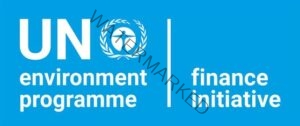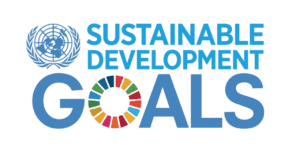Global Peace & Disarmament
Global Efforts to End the Scars of War
- Home
- Human Rights
- Global Conflict Escalation & Potential for a 3rd World War
World Needs Peace, Not Weapons that Further Fuel Wars
Global Conflict Escalation & Potential for a 3rd World War
 The shadow of war continues to darken the modern world, despite the deep-rooted desire of societies across the globe for peace. From armed conflicts that leave communities devastated to a global arms trade that fuels violence, humanity’s journey from war to peace is a complex narrative that calls for unity and collective effort. With wars and conflicts eroding the pillars of global stability, the focus must shift to robust conflict resolution mechanisms, humanitarian considerations, and a rethinking of how resources—particularly military spending—are allocated.
The shadow of war continues to darken the modern world, despite the deep-rooted desire of societies across the globe for peace. From armed conflicts that leave communities devastated to a global arms trade that fuels violence, humanity’s journey from war to peace is a complex narrative that calls for unity and collective effort. With wars and conflicts eroding the pillars of global stability, the focus must shift to robust conflict resolution mechanisms, humanitarian considerations, and a rethinking of how resources—particularly military spending—are allocated.
The human cost of war, conflict, and violence cannot be overstated. As the world faces numerous conflicts, from territorial disputes to ideological wars, the global community must urgently shift its focus from military aggression to peacebuilding and conflict resolution. While the devastation of war is evident, it is equally important to address how unchecked arms trading fuels this violence, jeopardizing basic human rights and the stability of entire regions.
The Human Cost of Armed Conflicts
The reality of modern warfare has shifted significantly, with civilians bearing the brunt of the violence. Weapons such as artillery, mortars, and guided missiles obliterate not just military targets but also crucial civilian infrastructure, destroying homes, hospitals, markets, and transport systems. This destruction plunges survivors into cycles of poverty and trauma, as livelihoods are wiped out and communities are reduced to rubble.
This tragic reality is not limited to active war zones. Gun violence has become a daily tragedy across many parts of the world. Shockingly, more than 500 people die every day due to violence involving firearms, with many of these victims residing far from official conflict zones. The rise in arms trading and production directly fuels this violence, allowing dangerous weapons to circulate in areas of political instability and conflict, exacerbating the already fragile conditions in these regions.
The Global Arms Trade: Exporting Conflict
In today’s world, the unchecked proliferation of arms has contributed to the endless cycle of violence and conflicts. Shockingly, about 12 billion bullets are produced annually—enough to kill everyone on Earth twice. The global arms trade facilitates the distribution of weapons and ammunition on a massive scale, and despite the existence of regulatory frameworks like the Arms Trade Treaty (ATT), loopholes allow weapons to flow into areas where they contribute to gross human rights abuses.
The ATT, was intended to regulate international arms transfers and prevent weapons from reaching areas where they would be used to commit serious violations of international humanitarian law. However, key arms exporters like Russia and the United States have not ratified the treaty. Even those countries that have ratified it frequently fail to comply with its terms, allowing arms to fuel conflicts and potential war crimes.
This unregulated arms trade is not only a driver of war but also an exporter of violence and terrorism. The unchecked flow of weapons to unstable regions exacerbates conflict and increases civilian casualties, contributing to a vicious cycle of violence.
Countries that produce and export these weapons must take responsibility for the consequences of their actions. Regulations under the ATT should be strengthened, and non-compliance should result in sanctions and penalties. The world cannot afford to allow arms trading to continue unchecked, especially when it fuels conflicts and violations of international humanitarian law.
Case Studies: The Cost of Military Spending and Arms Trade
The repercussions of unchecked military spending and arms trade are most evident in countries where heavy investments in defense come at the expense of human rights and social welfare. Countries like India, Pakistan, North Korea, Russia, and Saudi Arabia provide clear examples of this.
India and Pakistan: Both India and Pakistan allocate substantial portions of their national budgets to defense. These two nuclear-armed neighbors have been engaged in a tense rivalry for decades, particularly over the Kashmir region. While they continue to spend billions on arms procurement and military modernization, their populations face pressing issues such as poverty, lack of access to healthcare, and education. The diversion of resources to military spending severely undermines efforts to improve the lives of their citizens, with millions living without basic necessities.
- North Korea: North Korea’s massive military spending drains resources that could otherwise address critical needs like food, healthcare, and infrastructure. By prioritizing the development of its nuclear program and maintaining a large army, the regime diverts funds from essential services, leading to widespread poverty, food shortages, and poor living conditions for the population. Economic sanctions exacerbate these issues, as they limit trade and access to global markets, further depriving ordinary North Koreans of basic necessities, while the government continues to prioritize defense spending over human welfare.
- Russia: Russia’s defense budget is among the largest in the world, and it continues to prioritize military spending even as many of its citizens face economic hardship. Russian military interventions, particularly in Ukraine, have resulted in thousands of civilian casualties and widespread human rights abuses. The war has displaced millions and created a humanitarian crisis, illustrating the human cost of unchecked military ambitions.
Saudi Arabia: Saudi Arabia, one of the world’s largest arms importers, has been involved in the ongoing conflict in Yemen. The Saudi-led coalition, heavily reliant on foreign arms suppliers, has been accused of committing war crimes through indiscriminate bombings of civilian areas, including hospitals and schools. While the kingdom invests billions in defense, domestic human rights issues are glaring. Basic freedoms, such as freedom of speech and women’s rights, are severely curtailed, and dissent is met with harsh repression.
These cases highlight a critical dilemma: resources that could be directed toward improving human rights, education, healthcare, and economic development are instead channeled into purchasing killing machines that fuel conflicts and exacerbate instability. The heavy reliance on military spending at the expense of human development is a global challenge, one that calls for immediate intervention.
The Consequences of Unregulated Arms Trading
Irresponsible arms trading devastates communities both inside and outside conflict zones. In countries ravaged by war, artillery, mortars, guided bombs, and missiles have flattened entire cities. Civilians, the most vulnerable in these situations, are caught in the crossfire. Beyond conflict areas, the easy availability of firearms contributes to rampant gun violence, with innocent lives lost daily.
The sale and transfer of weapons, often driven by profits, overshadow the human cost. While some governments argue that arms trading is necessary for national security and defense, the long-term consequences of these actions are devastating. Weapons intended for self-defense often fall into the hands of violent non-state actors or regimes that use them to suppress and terrorize their populations.
The global arms trade is not just an economic issue; it is a moral one. When governments fail to regulate the sale of weapons, they become complicit in the violence these arms perpetuate.
The Need for Conflict Resolution and Global Peace Initiatives
Achieving global peace requires more than just an end to armed conflicts; it necessitates a fundamental shift in how the world approaches disputes. The solution lies in conflict resolution—finding peaceful means to address disagreements, whether through diplomacy, negotiation, or dialogue. International organizations, governments, and civil society groups must collaborate to develop comprehensive peace strategies that prioritize human rights over military power.
Reducing military spending and curbing the arms trade are critical steps toward lasting peace. Countries must reallocate resources from defense to human development, focusing on eradicating poverty, improving education, and ensuring access to healthcare. Furthermore, the international community must strengthen the Arms Trade Treaty by holding non-compliant countries accountable and pushing for its universal ratification.
A Call for Unity
In a world still grappling with the consequences of war and violence, the global community must unite to prioritize peace over conflict. Wars have only served to deepen divisions, destroy lives, and perpetuate suffering. By regulating the arms trade, reducing military spending, and investing in conflict resolution, nations can work together to build a future where peace prevails over war. The path from war to peace is one that requires commitment, compassion, and unity—a global call that we must heed before it is too late.
As we confront the sobering realities of armed conflict, military spending, and reckless arms trading, the world stands at a crossroads. The path from war to peace demands that we rethink our approach to global security, prioritize conflict resolution, and hold nations accountable for their role in fueling violence. The unchecked export of arms, often labeled as “defense” but in reality functioning as violence exports, must be curtailed.
From the battlefields of Syria to the streets of impoverished communities around the world, the human cost of war and violence is all too apparent. The world can no longer afford to allow the reckless trade of arms to devastate lives and fuel conflicts. A global call for unity, stricter enforcement of the ATT, and a reevaluation of military spending are essential steps toward creating a world where peace prevails over war, and human rights take precedence over profit.

- Palestine Israel Conflict: A Historical Background Since 19th Century
- Global Conflict Escalation & Potential for a 3rd World War
- Social Justice: Envisioning a Futuristic Egalitarian Society
- Freedom and Democracy: Pillars of a Thriving Society
- Global Poverty Eradication Challenge & Way Forward
- Global Peace & Disarmament Challenge in the 21st Century
- Climate & Environment: Our Collective Responsibility
- Gender Equality Challenge (SDG 5)
- Quality Education for All: A Focus on SDG 4
- Future of Affordable and Clean Energy (SDG 7)
- India’s Democracy at a Crossroads: Crisis or Evolution?
17 Development Goals 17 Sustainable Development 17 Sustainable Development Goals 17 Sustainable Development Goals SDG 17 Sustainable Goals 2030 Agenda Commission On Sustainable Development Development And Sustainable Development Development Sustainable Development Durable Development MDG Millennium Development Goals MDGS Goals Millennium Development Goals SDG Development SDG Goals SDG Of UN SDGs Sustainable Development Goals SDG Sustainability SDG Sustainable SDG Sustainable Development Goals SDG Un SDG United Nation Strategic Development Goals Substantial Development Sustainability And Development Sustainability And Sustainable Development Sustainability SDG Sustainable Development Sustainable Development Goals Sustainable Development Goal SDGs Sustainable Development Project UN 2030 Agenda UNDP SDG UNDP SDGs UNDP Sustainable Development Goals United Nation SDG United Nations Organization Sustainable Development Goals United Nations SDG United Nations Sustainable Development Goals United Nations Sustainable Development Goals (SDGs) United Nation Sustainable Development Goals UN SDG UN SDGs UN Sustainable Development Goals Un Sustainable Development Goal SDG
- Home
- Act of Kindness Video Contest 2025
- Become A Volunteer
- Contact Us
- Donate Now to Support Our Cause
- Fundraising & Digital Marketing Support for Nonprofit Organizations in 2025
- Global Youth Ambassadors' Summit 2025
- News & Reports
- Our Causes
- Drinking Water for Humans & Animals of Drought-Stricken Thar Desert
- Educate a Girl in Pakistan & Give Her a Future
- Help a Family Caught in a War-Zone
- Help Protect a Child Caught in a War-Zone
- Help us Give the Gift of Sight to a Million Poor Blind Children in Pakistan
- Plant a Commemorative Tree to Help us Fight the Climate Change
- Our Mission
- Global Peace and Disarmament Challenge in the 21st Century
- Global Peace and Disarmament: Building a Safer, Inclusive, and Sustainable World in the 21st Century
- Redefining Terrorism for Lasting Global Peace
- Reforming the United Nations for Lasting Global Peace
- The Escalating Global Conflicts and the Looming Threat of a 3rd World War
- Our Vision
- World Peace Ambassadors' Summit 2025
INTERNATIONAL PARTNERS






